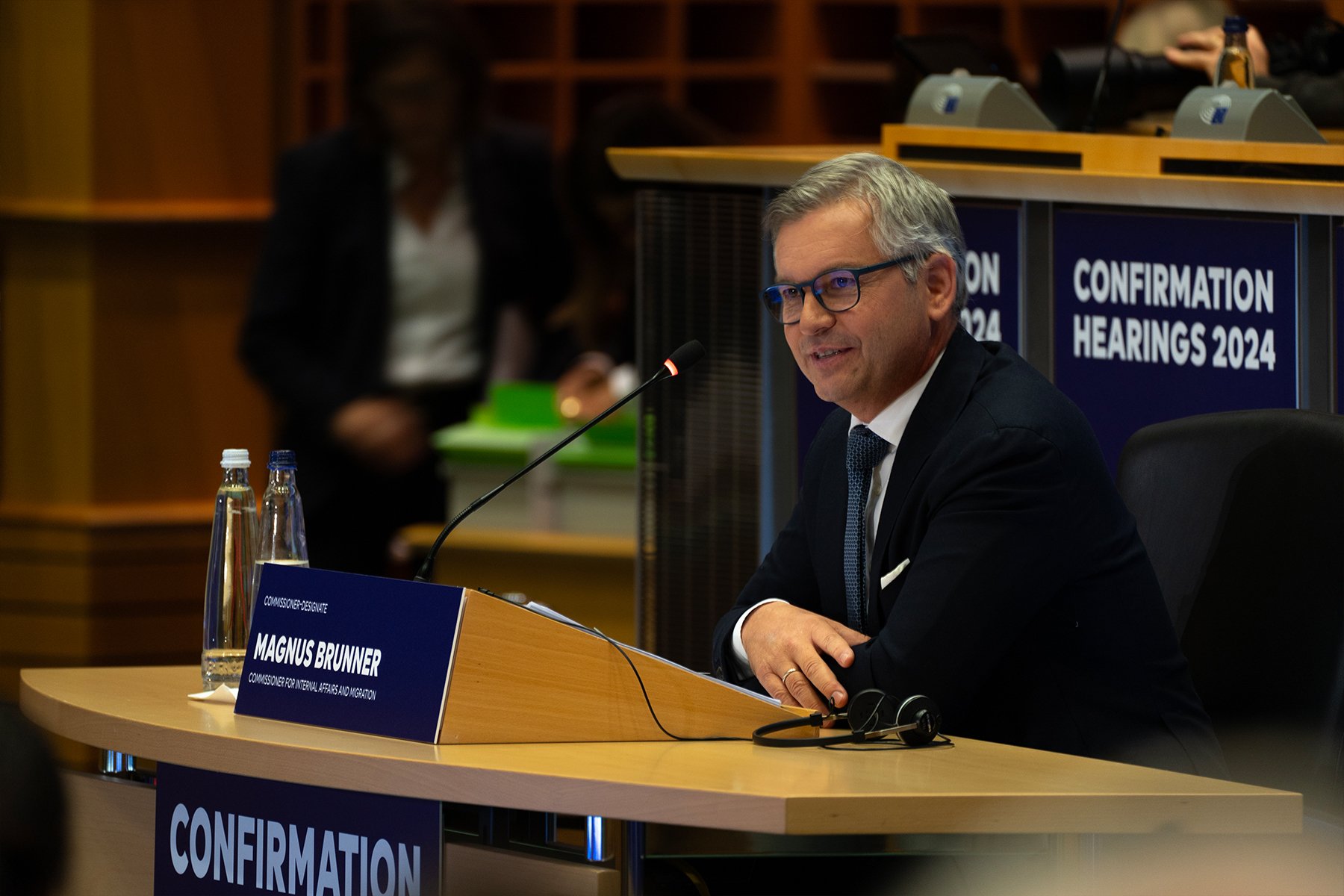Brussels, 5 November 2024
On Tuesday evening, the Committee on Civil Liberties, Justice and Home Affairs questioned Magnus Brunner, Austrian candidate for the Internal Affairs and Migration portfolio.
In his opening remarks, Commissioner-designate Magnus Brunner stated that security threats have become more complex and international. To keep Europe safe and true to its values, his three guiding principles would be to increase preparedness and foresight, find comprehensive and balanced solutions, and pursue intense international cooperation.
Responding to MEPs main concerns regarding internal security and the control of external borders, Mr Brunner committed to presenting a comprehensive internal security strategy in the first half of 2025, and to extending the mandate of Europol and build on the Ports Alliance to combat cross-border organised crime.
Managing migration
Mr Brunner argued that migration should be managed with fair but firm rules, in closer cooperation with transit countries and countries of origin in a “whole of route approach”. Human rights are non-negotiable, he insisted. An essential part of his new mandate, he said, will be the swift and full implementation of the Pact on Migration and Asylum and to maintain the balance between solidarity and responsibility. After MEPs pressed him on potential infringement procedures should implementation deadlines be missed, Mr Brunner pledged his readiness to start such procedures where necessary.
As MEPs questioned him on the details of a new returns proposal, Mr Brunner said that it would be tabled as a priority in 2025 and involve streamlined procedures.
Mr Brunner also pledged to deepen partnerships with third countries and strengthen legal pathways for migrants to Europe to attract workers and safeguard the EU’s economic prosperity. He mentioned finalising the EU Talent Pool and the proposals on long-term residents as important steps forward.
Secure external borders
After MEPs raised migrant-smuggling and human trafficking, Mr Brunner highlighted the need for international alliances and partnerships, as well as advancing new legislation to strengthen Europol’s role in this area. Tripling Frontex operational forces will help member states protect external EU borders, combat human trafficking, and will also contribute to returns, he said.
To counter efforts to instrumentalise migrants on the EU’s eastern external borders, Mr Brunner said he will ensure a united response using the available tools and without compromising on EU values.
Preserving the Schengen area
Answering MEP questions on the state of the Schengen area, Mr Brunner said that free movement is vital for Europe’s competitiveness and border checks disruptive to its citizens. Improved police cooperation and talks with member states could improve the current situation, and infringement procedures are also a possibility, said Mr Brunner. He is also optimistic about the prospects of Bulgaria and Romania fully joining the Schengen area, and said that he would push for this.
Press point
At the end of the hearing, the Chair of the Committee on Civil Liberties, Justice and Home Affairs Javier Zarzalejos (EPP, ES) held a press point outside the meeting room: watch it here.
Next steps
The committee chair and political group coordinators will meet without delay after the hearing to assess the performance and qualification of the Commissioner-designate. Based on the committee recommendations, the Conference of Presidents (EP President Metsola and political group chairs) is set to conduct the final evaluation and declare the hearings closed on 21 November. Once the Conference of Presidents declares all hearings closed, the evaluation letters will be published.
The election by MEPs of the full college of Commissioners (by a majority of the votes cast, by roll-call) is currently scheduled to take place during the 25-28 November plenary session in Strasbourg.
Further information
- Committee on Civil Liberties, Justice and Home Affairs
- EP hearing webpage: Commissioner-designate Magnus Brunner
- EP research briefing
- Timetable of hearings
- Webstreaming of the hearing
Source – EU Parliament

